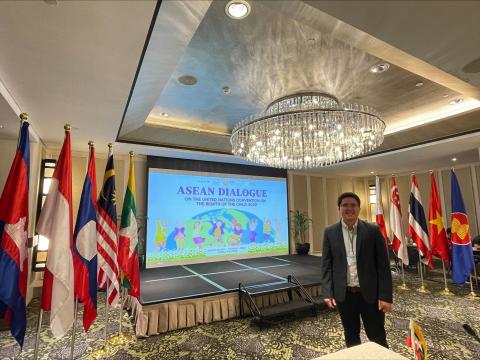Empowering voices: World Vision's impact at the UN High-Level Forum

In a collaboration following the Asia Pacific Forum on Sustainable Development, World Vision East Asia has joined hands with the UN Economic and Social Commission for Asia Pacific (UN ESCAP) to showcase compelling case studies on citizen-generated data and child participation in achieving Sustainable Development Goals (SDGs) from the East Asia region. These insightful studies were unveiled during the UN High-Level Political Forum (HLPF) on Sustainable Development, held from July 10 to 19 at the UN headquarters in New York.
The HLPF, a pivotal global platform, facilitates the review and advancement of the 2030 Agenda for Sustainable Development and the Sustainable Development Goals (SDGs). This year's focus, "Accelerating the recovery from the coronavirus disease (COVID-19) and the full implementation of the 2030 agenda for sustainable development at all levels," brought together ministers, diplomatic missions, major groups, stakeholders, and civil society organisations. The event underscored the in-depth evaluation of SDGs 6, 7, 9, 11, and 17.
A significant highlight of the HLPF was the presentation of Voluntary National Reviews (VNRs) by various countries. These comprehensive reports offer insights into the progress, achievements, challenges, and lessons learned in SDG implementation. VNRs play a pivotal role in enhancing evidence and data related to SDGs, thus bolstering policies and institutions.
During the HLPF, Ariel Odtojan, Regional Advocacy Manager of World Vision East Asia, passionately conveyed the significance of community engagement, particularly involving children and young people, in shaping SDG implementation. He emphasised the utilisation of citizen-generated data by communities to identify successes and gaps in policy execution. Through social accountability strategies, communities harness this data to collaborate with local governments and other stakeholders in service delivery. This inclusive approach not only empowers these voices but also positions them as agents of change, fostering a sense of ownership and involvement.
It's clear that to realise the vision of Agenda 2030, governments must prioritise people and place children at the heart of the SDG framework. Achieving the SDG goals requires a responsive, context-specific, and inclusive approach that accelerates children's development, fostering a world where no child is left behind. World Vision's collaboration underscores the power of community engagement and the potential of the younger generation in driving meaningful change.
Full session of the VNR Data Lab
Citizen-generated data to leave no one behind | Experiences from Asia-Pacific and beyond